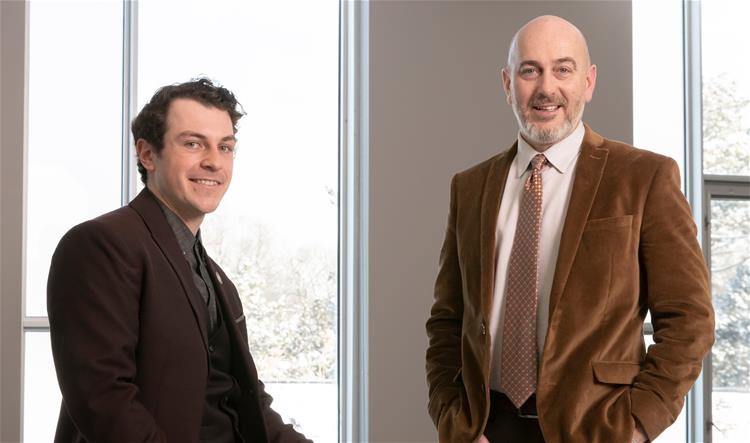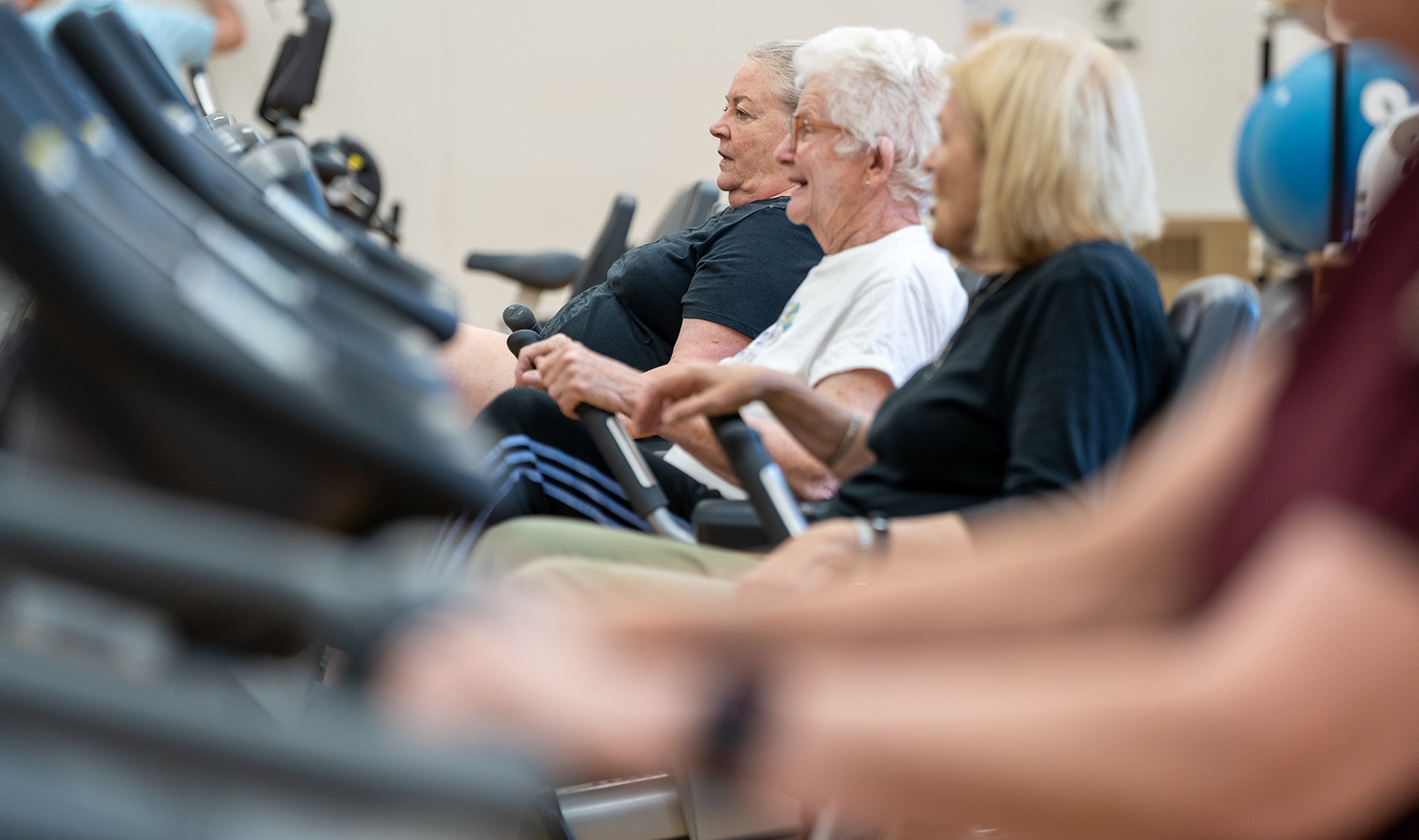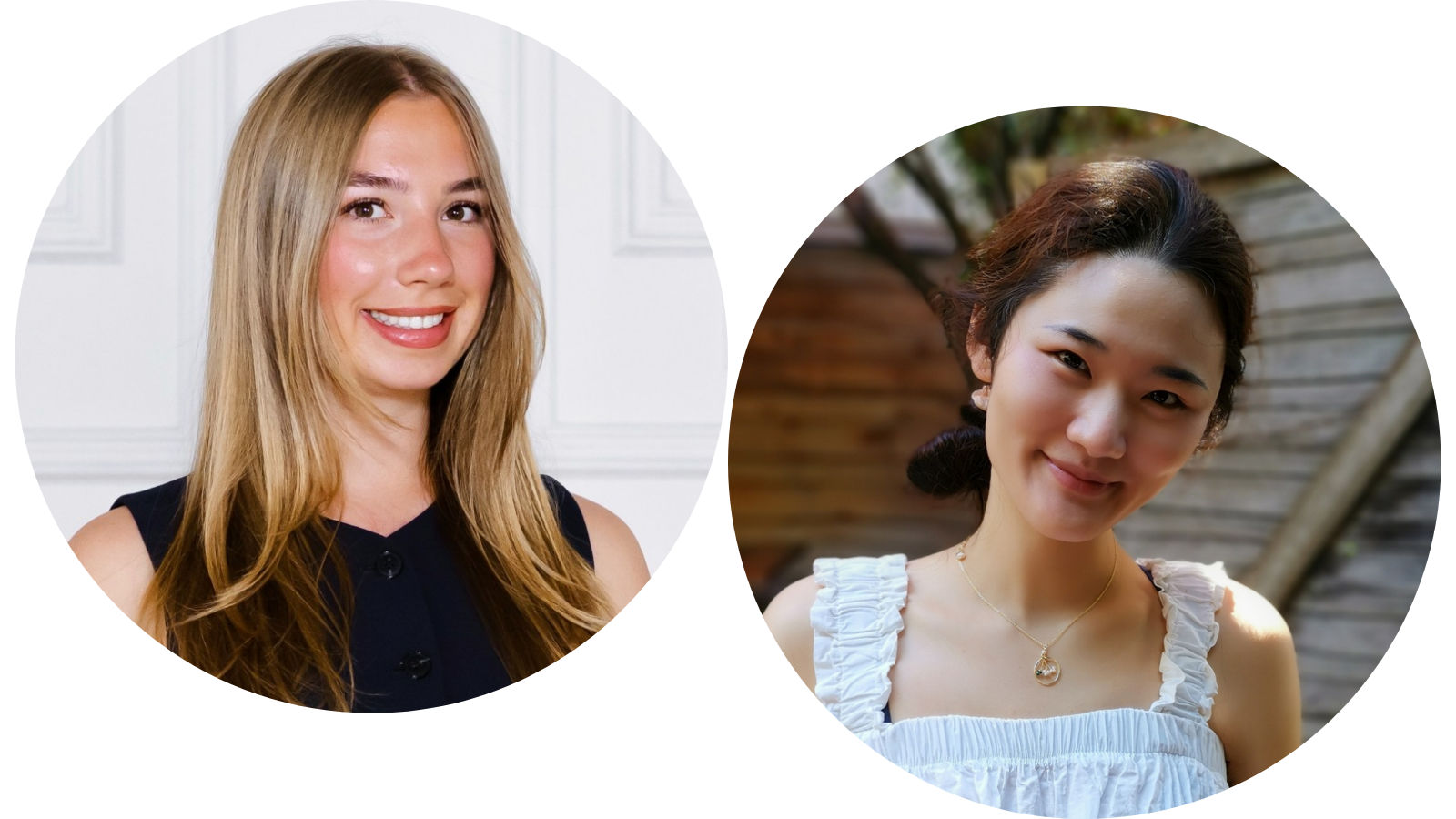
MIRA trainee Daniel Cursio, left, and his PhD supervisor and MIRA researcher James Gillett, are working on a project that will use the Royal Botanical Garden’s paths and trails as a living lab, to track how older adults engage with and benefit from time spent outdoors. Photo by J.D. Howell
McMaster’s doctorate in health and society is a pragmatic program for idealistic people.
There’s an emergency response worker who’s studying how the profession is changing as more responders have to provide care on the spot.
Another student is exploring older adults’ experiences as they taper down their medications in an attempt to take fewer drugs.
Another, Daniel Cursio, is an elementary school teacher and a senior ski patroller — that is, an outdoors emergency responder and alpine rescue expert. He came to Mac so he could combine his experience in emergency medical care with his background in education.
That might not sound like a natural pairing, but it’s exactly what the health and society PhD program does.
“Health and society is a broad academic field that incorporates a whole range of social science perspectives on health,” says Gavin Andrews, interim chair of the Health, Aging and Society department in the Faculty of Social Sciences.
These include health geography, sociology, political science as it applies to health, medical anthropology and health economics, to name a few.
“The idea is that you bring the best ideas and theories and methods from each discipline into your work,” he explains. “So the type of research you do at the end is stronger for being more multidisciplinary.”
It makes for a department unlike any other, Andrews says.
“If you were a geographer like me who was interested in a health-related subject for your PhD and you joined a geography department, everybody around you would also be a geographer,” he says. “You’d be surrounded by colleagues, PhD students, faculty, who all share your expertise, but none may share your interest in health.”
But it’s is the other way around in the health and society department. “You may be a geographer and you have may even have one or two colleagues who are also geographers, but everybody — the sociologists, the anthropologists, the political scientists — all of them will share your empirical interest in health,” he explains. “And every one of them has an interesting perspective to add to your own.”
Cursio, only a few months into his PhD, agrees.
“I had assumed that because McMaster is a research-intensive university, it would have a different feel,” he says. “But I’ve already gotten to know the faculty members and staff and students in my department. I’ve really never felt more welcome coming into a place.”
Andrews says that feeling is one reason the department keeps its two doctoral programs small — right now, the health and society PhD and the social gerontology PhD combined have 18 students.
“If our students want to know something, they’ll just knock on your door and ask you. Because we have fewer students, we can give them the time,” he says. “If we had a bigger PhD program with, you know, 40-50 students, I don’t think we could facilitate that kind of response.”
Another advantage of a relatively modest-sized program is that the department can give everyone space in shared offices. “They can share ideas and experiences, and the students who have been in the program longer can act as informal mentors to the newer students,” Andrews says.
Cursio says he has benefited from having several informal mentors as he begins his doctoral work, in addition to his supervisor, James Gillett. The two are working on a project that will use the Royal Botanical Garden’s paths and trails as a living lab. Funded by the McMaster Institute for Research in Aging, the project will track how older adults engage with and benefit from time spent on outdoor trails and interpretive walks.
Through Gillett, Cursio has got involved in another project, using his background in education to work with Vickie Galea from the School of Rehabilitation Science to develop high-quality learning resources that will allow medical practitioners to better understand patients’ chronic and acute pain.
“Being in the community, exploring the sociocultural, political and organizational aspect of health and health care is an aspect of health that’s not necessarily part of a medical education, but it’s something our program does well,” says Gillett, who is also associate dean of graduate studies and research in the Faculty of Social Sciences.
“A lot of students do community-engaged research, working with people who are living on a daily basis with the issues they are studying. It’s not a requirement, but the program itself lends to taking that perspective.”
The advantage of looking at health in the context of social systems is that it leads to social innovation, Gillett says. One PhD student, for example, is looking at how to build pathways right into the health-care system to help older adults re-evaluate their medications and take fewer unnecessary drugs.
Rather than putting all the responsibility on older adults, the student wants to adapt the system so pharmacists, doctors and even family members are involved in evaluating how many meds someone takes.
“It becomes part of the social fabric: Let’s not change the individual, let’s change the system and structures around them so it’s better for the individual,” Gillett says.
“If we want to make the world a better place, we have to come up with pragmatic solutions.”
This article was first published on Brighter World. Read the original article.​

